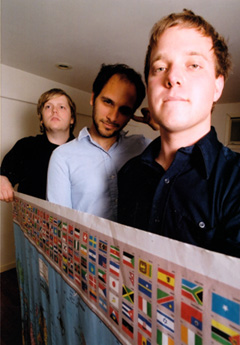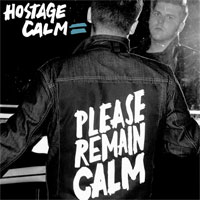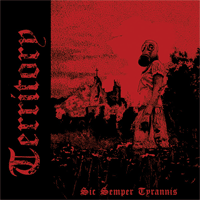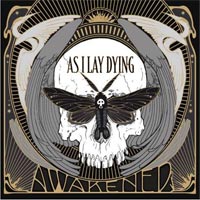Q AND NOT U
 Dissonance ebbs and becomes jarring, poignant — the twin guitars tear the air, filling it with vocals, smooth and pleading, “Let’s stop this clock from starting/Wrong, the time’s spelled wrong.” The guitarists nod, their worn guitar necks held outward, moving in unison as the enveloping noise becomes a caress — the warm tones are inviting.
Dissonance ebbs and becomes jarring, poignant — the twin guitars tear the air, filling it with vocals, smooth and pleading, “Let’s stop this clock from starting/Wrong, the time’s spelled wrong.” The guitarists nod, their worn guitar necks held outward, moving in unison as the enveloping noise becomes a caress — the warm tones are inviting.
Q and Not U are a rock behemoth. Not quite recognized as such yet, the band has finished a fourteen-month world tour in support of late 2002’s “Different Damage.” Christopher Richards, sweating in a button-down shirt and armband, pauses to stare at the audience as he drops his guitar and dives, hands first, for a bass, placed snuggly behind a monitor. Drummer John Davis continues his polyrhythmic beats on a snare and maracas, entrancing yet sure. Guitarist Harris Klahr’s steady guitar work flourishes with abrasive, clean shocks and embracing silence.
Q and Not U formed in 1998, a product of the histrionic Washington DC hardcore music scene. The band released its first single, “Hot and nformed,” a joint release by DeSoto and Dischord Records, in 2000. The single’s cover imagery, the ubiquitous Metro car interior, nearly speaks for the band. The city’s reputation for exaggerated post-hardcore acrobatics, defined by acts like Jawbox and Fugazi, is merely one of the reference points for Q and Not U: with two seemingly perfect albums, 2000’s “No Kill No Beep Beep” and “Different Damage,” Q and Not U are now defining DC.
Meeting Richards for the fourth time in the dusty parking lot of Tallahassee’s Beta Bar, he is polite. This is not the same Richards who dove into an audience wielding a shovel at 2003’s Fort Reno, an outdoor summertime concert series in DC. Richards’ freestyling about the current Presidential administration’s pitfalls that night resonated to an audience of hundreds of people. Tonight, the Beta Bar is almostempty, holds maybe fifty people.
Richards, earnest regardless, seems shorter than he looks onstage. Wearing glasses and clasping his hands behind his back, he speaks with ease, probably practice. His shirt is neatly complemented by a pinned Black Flag patch. “We grew up in the hardcore scene,” he tells me, “listening to early hardcore like Black Flag, Bad Brains, and Minor Threat.” “No Kill No Beep Beep” was a frenzied affair; percussive attacks competing with sheeting guitar noise, angular and smooth. A product of reflection, “No Kill No Beep Beep” was nearly a culmination of past DC musical efforts.
“Of course, we were really into what was happening in DC in the 90’s: Nation of Ulysses, Slant 6, the Make Up, Circus Lupus and Lungfish. Those were our formative experiences,” Richards remembers, “but when the band started, we began listening to more dance music.”
Richards, hands becoming expressive, is rocking on his heels. Dust covers his black Converse sneakers. He smiles and laughs. “I might be making a stretch here but when we started, there was a radio format that was really popular – Jammin’ Oldies. A real popular format that played nothing but Disco; it exposed us to a lot of dance rhythms. We found out about Afrobeat music, like Fela Kuti and Tony Allen. Now it’s wide open. Harris is into free-jazz and avant-garde composers. John really loves power-pop and traditional American folk bands. I like a lot of early 90’s hip-hop and Brazilian/Tropicana music.”
The departure of bassist and founding member Matt Borlick, shortly after the release of “No Kill No Beep Beep,” left Q and Not U visibly strained during performances. Live shows became problematic, as the band struggled to remain a three-piece. Time changes and dynamic shifts were no longer seamless. Shortly after the release of “No Kill No Beep Beep,” Q and Not U looked visibly pained during performances. Live shows were problematic, as the band struggled to remain a three-piece. Time changes and dynamic shifts were no longer seamless. Richards moved away from the guitar to become the band’s primary bass player. A new sound emerged – raucous distortion was replaced with clean guitar tones – and bass lines became more prominent. The band’s original compositions were re-worked; Klahr’s subtle inclusion of keyboards and samplers into performances was revelatory; older songs proved to be only templates for a more danceable Q and Not U.
“There is more concentration on the rhythm section. We’ve begun toexperiment with our writing process — it’s real loose. It blossoms from us just playing together for hours on end. Sometimes John will have guitar parts and Harris will play the drums — we have no formula. The real labor is organizing songs into actual songs rather than non-linear jam parts, more than just riffs.”
Both of the band’s albums, released on Ian Mackaye’s Dischord Records, bear Mackaye’s distinctive stamp. Recorded with Mackaye and Don Zientara at the famed Inner Ear Studios [in Washington], Different Damage served as a breakthrough for the band. “Ian always has tons of suggestions and tons of ideas. It was good to work with him, a real strong personality in the studio. He helped push us to the limit, bringing out the best in us.”
The clean production reveals a more accessible album, like a modern Gang of Four. Davis’ remarkable percussion, further refined and accelerated, grounds the band. Vocal melodies, nearing the Beatlesque on “Snow Patterns,” clash with dense, screaming arrangements on “Black Plastic Bag.” These songs [push the album beyond the merely] memorable, ensuring its power. The first three tracks – “Soft Pyramids,” “So Many Animal Calls, and “Air Conditions” – merge to create a medley of Dub- infected post-punk. The short shots of bass shudders and Klarh’s guitar work are expansive, fused with keyboards, electronic woodwinds and rock steady breakbeats.
Live, the band expands on a single note, reshaping shorter songs into dance anthems. The audience, always moving, frames the band in photo flashes. Davis is unstoppable, never pausing while Richards and Klahr simply inherit the stage – its small borders are ritualistically tested. The pair share guitar duties, while Klahr plays a domineering keyboard and Richards’ instrument rotation features bells, chimes, small keyboards and the bass.
Vocals are simply another instrument. Richards’ relatively straightforward phrasing is met by Klahr’s screams. The lyrics are sometimes abstract: “New sonic reduction’s barely staid/Who has the nerve to sing la la la?” they sing on “This Are Flashes, the lyrics a brief still life, an attack on everything from fashion, post-modernism, belt way politics and the ever expanding suburbia.
The new single contains one of the band’s strongest songs to date. “X-Polyination” flirts with vocal effects, distorted bass and decidedly funky guitar. “The lyrics on the new single are a little more explicit – they tie into what is happening in the world right now. The new single is informed by recent situations in the world, a reaction to what is going on in the political arena. It wasn’t a conscious decision, but I feel playing music is a response to what’s going on around you in the world. I mean, the Bush administration is a complete embarrassment and dangerous abomination.”
“Time is ticking for George W. Bush. He’s doing an effective job with his attack ads on Kerry, but when it comes down to crunch time, I think Bush’s deplorable record will be hard for voters to overlook. I don’t think Kerry is a prince, but this election is so unique, in that choosing a lesser of two evils is justified and critical. We’re going to be in very sad shape if we let this brat get another 4 years in office.”
“We’re trying to tell people we’re not children – we’re citizens of this country. If you’re 18 years old, you can vote. You have a choice, and all these problems that these guys are fucking creating to put more money in their pockets, it’s creating debt and a horrible legacy for us to inherit. We’re trying to fire people up without preaching to them. People are really relaxed and they don’t realize how dangerous the situation is. It’s really important to go out [and vote] in 2004. Get this fucker out of town.”
Surrounded by touring vans, Richards is hopeful. The summer will see the band playing across the world, visiting UK and South Africa before recording in DC in August (all of which already happened in grand fashion – Ed.). “We try not to be too self-conscious. We love Washington, the music we grew up with. We want to be a great band, to try our best, which might sound incredibly cheesy.”
- By James Miller



